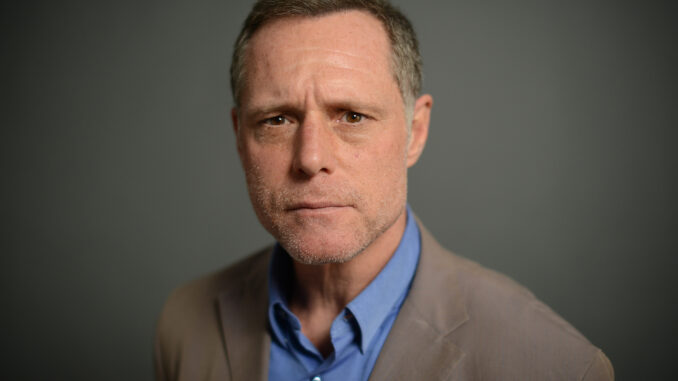
The Unholy Trinity: Voight, Reid, and the Inevitable Fall
The concrete canyons of Chicago P.D. have always been a crucible for justice, a place where the lines between right and wrong are perpetually blurred by the grit and grime of the city. At its heart beats the morally ambiguous, fiercely loyal, and utterly compelling presence of Sergeant Hank Voight, embodied with a raw, almost visceral intensity by Jason Beghe. For eleven seasons, Voight has navigated the treacherous waters of his own code, a compass spinning wildly between brutal effectiveness and a deeply personal, often violent, brand of righteousness. Now, as the shadow of Season 12 lengthens, Beghe’s pronouncement that "Somebody's Going Down" in the escalating feud between Voight and the new guard – personified by the principled, by-the-book Reid – isn't just a plot tease; it’s a philosophical declaration on the very soul of the show, a premonition of a seismic shift in the volatile landscape of Intelligence.
To understand the weight of Beghe’s words, one must first understand the man behind Voight. Jason Beghe doesn't merely portray Hank Voight; he inhabits him with an almost primal understanding, a guttural growl that seems to emanate from the very soul of the character. When Beghe speaks about Voight, he speaks with the authority of someone who has stared into the abyss of a character’s motivations, who has wrestled with his demons and celebrated his brutal victories. He understands Voight’s bedrock: a protective instinct so fierce it transcends law, a willingness to get his hands dirty so others don’t have to, and a profound, often unspoken, sorrow for the lives he cannot save. This isn’t just acting; it’s an excavation of a complex human being, flawed and formidable in equal measure.
The emergence of Reid, therefore, is not merely the introduction of a new antagonist, but the manifestation of Voight's deepest, most persistent ideological challenge. Reid represents the institutional purity, the unyielding adherence to procedure, the belief that justice, true justice, can only be found within the strict confines of the law. He is the antithesis to Voight's street-level pragmatism, his "ends justify the means" ethos. Their feud isn’t a petty squabble; it’s a clash of fundamental worldviews, a high-stakes chess match where the pieces are not pawns, but lives, careers, and the very integrity of the Chicago Police Department.
When Beghe intones, "Somebody's Going Down," the words hang heavy in the air, a stark prophecy of irreversible consequence. It implies a definitive end, not a ceasefire or a temporary truce, but a fall from grace, a professional ruin, or perhaps even a more literal, tragic demise. In Voight's world, such a declaration rarely resolves neatly. It's not about who is "right" in the abstract, but who possesses the will, the cunning, and the ruthlessness to survive a fight to the bitter end. Beghe, as Voight's interpreter, understands that this isn't a simple good-vs.-evil narrative. It's a test of resilience, a brutal dance of power where both combatants believe themselves to be righteous.
Beghe's likely interpretation of "how it ends" would certainly lean away from a clean victory for either side. Voight, in his essence, is a force of nature, unyielding and unbreakable, but even a force of nature can leave devastation in its wake. Perhaps the resolution doesn't see Voight "defeated" in the conventional sense, but rather a dramatic sacrifice, a final, bone-weary concession to a changing world, or a moment where he pushes the boundaries so far that the cost becomes unbearable, even for him. Or perhaps, in a dark twist, Reid, in his pursuit of institutional justice, becomes corrupted by the very intensity of the fight, forced to compromise his ideals to combat Voight on his own turf, thereby "going down" in a moral sense.
The "how" of this resolution, as envisioned by Beghe's deep understanding of his character, will likely be messy, impactful, and leave indelible scars on the fabric of Intelligence. It will not be a victory parade, but a somber reckoning. It could signal a profound shift in Voight's own character arc – a final confrontation with the demons that drive him, forcing him to adapt or crumble. Season 12, then, isn't just another season; it's a crucible, a moment of truth where the very identity of Chicago P.D. hangs in the balance.
Ultimately, Beghe’s revelation encapsulates the enduring power of Chicago P.D. It thrives on these morally grey areas, on the uncomfortable truths that the pursuit of justice often demands. The feud between Voight and Reid, as discussed by the man who knows Voight best, is more than a narrative device; it’s a philosophical statement. It asks us to confront the uncomfortable question of what we are willing to sacrifice for order, and whether the tools used to fight monsters inevitably turn us into them. When somebody goes down in Season 12, it won't just be a character; it will be a piece of the show's soul, irrevocably altered, leaving a vacuum that will define the seasons to come. And in that raw, brutal honesty, lies the true artistry of Jason Beghe and the lasting appeal of Hank Voight.
